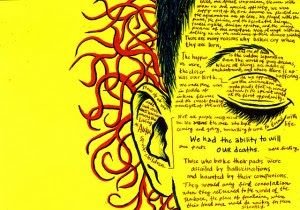Unit 9: Democracy and Human Rights (Grade 11 Compulsory English Grammar Solutions)- New Course
A. Find the words in the text that mean the same as the following. The
first letters are given.
a. the system that completely separated black people from white people (a…………….)
b. formal objection (p………....….)
c. an ethnical group of people (t…..…..……..)
d. an act undertaken to achieve a set goal (c……………..)
e. the formal beginning of any movement (i………….…..)
f. a strong feeling of excitement and happiness (e……………..)
g. being set free from legal, social, or political restrictions (e…….……….)
Answer Key:
a. apartheid b.protest c.tribes d.covinent e. inauguration f. exhilaration g. emancipation
B. Find these words in a dictionary and write their meanings as they are used in the text.
liberty: the states or quality of being free
conflict: struggle, opposition or argument between two people
ideology: a system of ideas and ideals, especially one which forms the basis of economic or political theory and policy.
oppression: prolonged cruel or unjust treatment or exercise of authority.
privilege: a special right, advantage, or immunity granted or available only to a particular person or group.
dignity: the state or quality of being worthy of honor or respect.
surrender: stop resisting an enemy or opponent and submit to their authority.
reconciliation: the restoration of friendly relations.
C. The 'd' or 'ed' in the following verbs have different pronunciations. Put these verbs in the correct box.
asked killed missed ended decided washed visited
lasted watched picked smiled fixed walked blessed
brushed stopped wanted reached laughed enjoyed
|
/t/ |
/d/ |
/ɪd/ |
|
asked missed washed watched picked fixed walked blessed brushed stopped reached laughed |
Killed, smiled |
Ended decided lasted visited |
D. Put these nouns into the correct box according to the pronunciation of the plural suffix: s/es.
cats dogs horses houses books roofs boys rooms girls noises
shops trees pages babies benches classes
|
/s/ |
/z/ |
/ɪz/ |
|
Cats books roofs shops |
dogs boys rooms girls trees |
horses houses noises babies benches Classes |
Grammar
Should and Had Better
Should is a modal verb that has more than one meaning. We use should to give general suggestion. (eg. You should quit smoking), but it could also mean that you expect something to happen in the future
eg. Rashmi called and told me she's on her way. She should be here soon.
The past tense of should is should have + past participle.
Had better is similar, but it's used for more urgent advice with bad consequences if you don't follow it : urgency, demand, threat, worry
eg. You had better quit smoking or you'll die.
B. Complete the sentences with should or shouldn't. Use one of these verbs.
drink visit leave roam quit
a. You have really done a wonderful job. I recommend you …… it.
b. That's a very dangerous area. Tourists …… there.
c. I'm going to be late. Do you think I …… now?
d. Children …… sugary drinks. It's not very healthy.
e. I have lots of homework. I …… here and there today.
Answer Key:
a. shouldn't leave b. shouldn't visit c.should quit d.shouldn't drink e. shouldn't roam
C. Put in had better or should.
a. I think you …… learn English to enroll a university course.
b. It's a great film. You …… go and see it.
c. I have to meet my friend in ten minutes. I …… go now or I'll be late.
d. These biscuits are delicious. You …… try one.
e. We …… get to the airport by 2 pm or else we may miss the flight.
f. When people are driving, they …… keep their eyes on the road.
g. I …… get up early tomorrow. I've got a lot to do.
Answer Key:
a. should b. should c. had better d. should e. had better f. should g. should
Speaking
Persuading
B. Now, look at some common expressions used for persuasion.
Come on……! Just for me! Give it a try! Just this once! Why don’t you…?
Please! Go ahead, Bina! Do… Try it! Go on!
C. Read and act out the following dialogue.
Mother : Your sister’s doing her homework. Why don’t you help her?
Son : Ah, mom, I’m a little bit tired right now.
Mother : Go on. She may make mistakes.
Son : She’s probably finished her homework by now.
Mother : No, she hasn’t. She’s just started. Go ahead. Help her.
Son : Oh, OK, mom.
D. What would you say in the following situations?
a. You’re with your friend in a shopping mall. Your friend wants to buy a new jacket. You see a nice one and want to persuade her/him to buy it.
b. You’re in a restaurant for lunch. You urge your friend to try some food of your choice.




Comments
Post a Comment